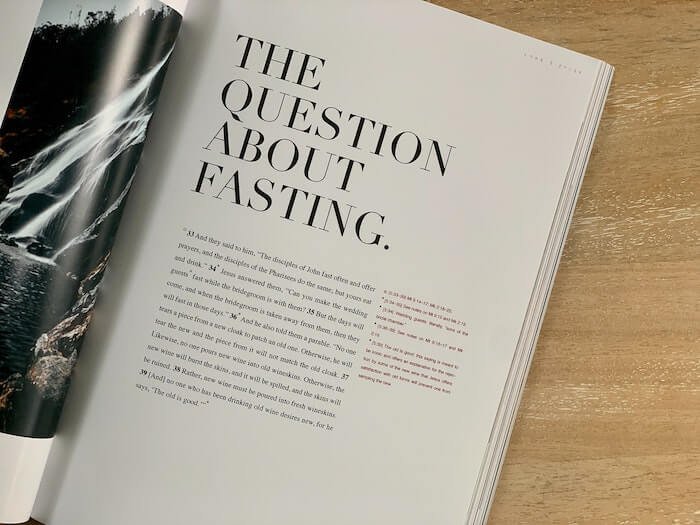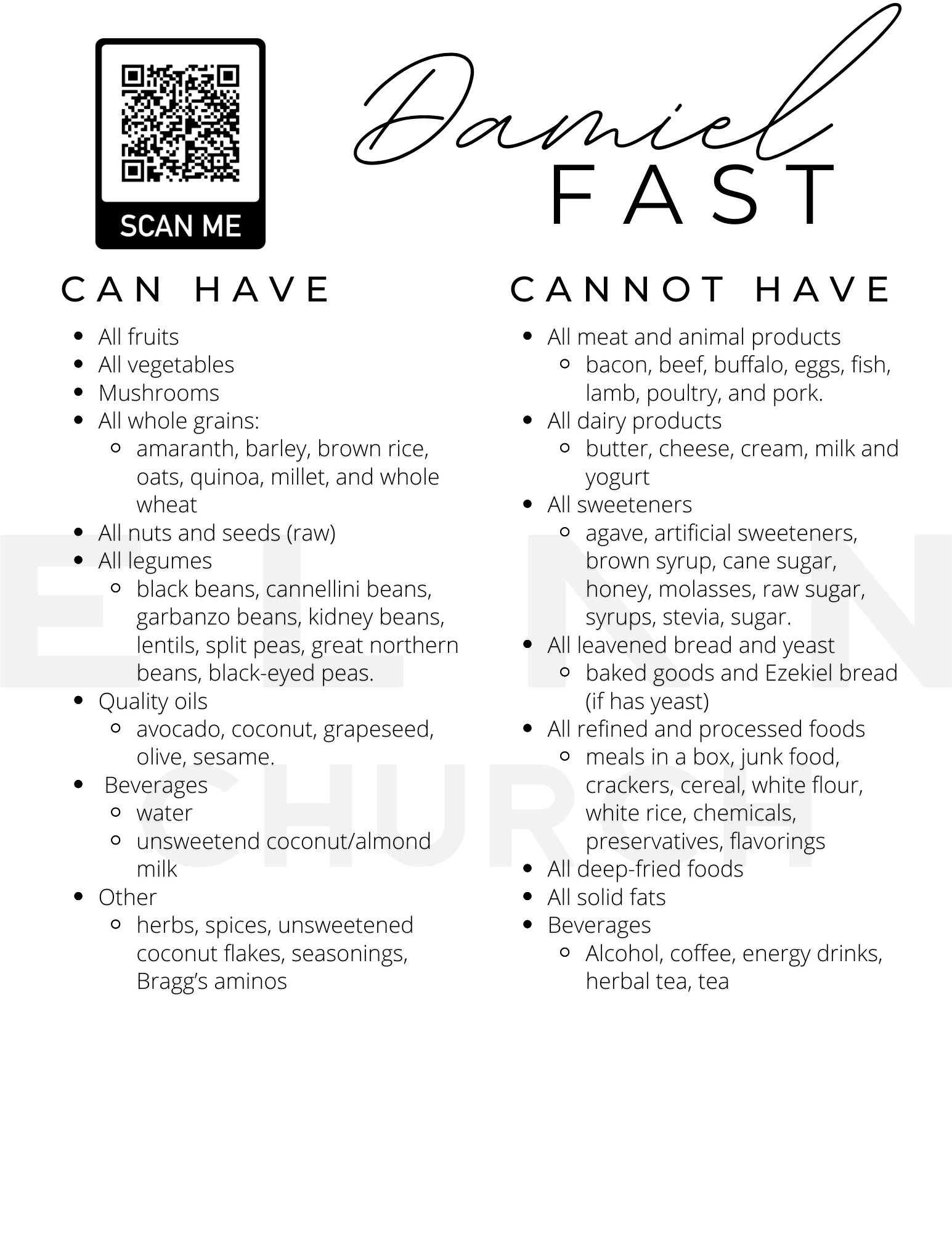21 Days Of Prayer And Fasting (2025)
Check Out This Simple Guide To 21-Days Of Fasting & Prayer
Introduction
So you’re interested in fasting? Maybe you’re brand new to prayer & fasting, or maybe you’re a seasoned veteran.
Regardless of where you’re at on the journey, this 21 days of prayer & fasting guide was created to help you understand how the spiritual discipline of prayer and fasting can help you grow closer to God and experience breakthrough in critical areas of your life.
Why do Christians fast?
In Matthew 6:16, Jesus looks tells His followers, “When you fast” and proceeds to give specific instructions about how they are to fast and pray. It’s interesting that Jesus didn’t say ‘if’ you fast, He said ‘when’ you fast. This tells us that Jesus assumed His followers were going to fast. This means fasting is a spiritual discipline that every Christian must devote themselves to.
All throughout The Bible, God’s people consistently took time to fast and pray in order to grow closer to God and experience breakthroughs in specific areas. If you are wanting to deepen your relationship with God or see Him move supernaturally in a specific area, this is a great time to fast and pray.
What is fasting?
Fasting is a powerful spiritual discipline that aligns our hearts more closely with the heart of God and also empowers us to see breakthroughs in specific areas. Fasting is when we go without food (or specific types of food) for a period of time and instead direct our attention more fully to God. It helps us as believers to not be ruled by our physical desires but to grow in spiritual power and authority over the desires of our flesh.
How do I fast?
When you decide to fast, the first thing to do is make a plan. Start by choosing the amount of time and the type of fast you are going to do. Fasting can take place for any specific amount of time and can include a complete fast, partial fast, or selective fast (ex. Daniel Fast). More information on specific timeframes and types of fasts has been listed below in this 21-day fasting guide.
It’s important to note that fasting without prayer is simply not eating. Remember that the goal is to not eat (or only eat specific types of food) for a time so that you can redirect your focus, energy, and attention toward God. The goal is to replace consuming food with time reading God’s Word and in prayer.
How long should I fast?
You can fast for any specific period of time you would like. Examples of common fasts are the one-day fast, three-day fast, 7-day fast, 21-day fast, and 40-day fast. That said, you can pick any specific amount of time as the Holy Spirit leads you. For those who have more experience with fasting, you may want to challenge yourself for a longer time or with a more challenging fast (ex. water only). For those who are new to fasting, you may want to start small and work your way up.
Types of fasts
There are a wide variety of types of fasts, which we’ve simplified into three main categories:
Complete Fast
Also known as a full fast, a complete fast is when you do not eat any food (and consume liquids only) for a specific period of time. Please consult a medical professional in advance if you intend to do a complete fast for a prolonged period of time.
Partial Fast
A partial fast is when you fast all food for a set specific time throughout the day. For example, you may decide to fast from sunrise to sunset and eat food only in the evenings.
Selective Fast (ex. The ‘Daniel Diet’ or ‘Daniel Fast’)
A selective fast is when you fast only specific types of foods. The most popular selective fast is known as the Daniel Fast (more details below).
*As a side note, please be wise when it comes to fasting. If you have struggled with an eating disorder or serious medical condition in the past, please consult with a medical professional in advance of fasting.
What about fasting social media or other activities?
The Bible does encourage us to abstain from specific activities for periods of time to devote ourselves more fully to God (ex. 1 Corinthians 7:5). However, fasting in Scripture specifically refers to food. So while choosing to abstain from specific things (ex. social media, TV, etc.) can be helpful, the Bible does not use the word fasting to describe this.
Abstaining from certain activities to grow closer to God is great, and we would actively encourage you to do this, but why not fast and also choose to abstain from one or more specific activities during the period of time you are fasting?
The Daniel Fast
If you have not tried fasting before, the ‘Daniel Fast’ is a great place to start. The Daniel Fast is called this because it’s taken from the Bible in the book of Daniel (Daniel 10:3).
A Daniel Fast is where you avoid meats, sweets, and treats for a specific amount of time. During a Daniel Fast, you normally consume rice, beans & lentils, vegetables, and fruits, while avoiding bread, meats, dairy products, sugars/ sweeteners, and alcoholic beverages.
For a more in-depth list of foods that can, and cannot, be eaten during a Daniel Fast, check out the image below (or click HERE). You can also scan the QR code for a list of Daniel Fast-friendly recipes.
Additional Insights for 21 Days of Prayer and Fasting
As you embark on this 21-day journey, here are some deeper insights and practical principles to encourage and guide you along the way:
Goals of Fasting
Fasting is a spiritual discipline with many benefits that can help you:
Draw closer to God by aligning your heart with His.
Pursue spiritual breakthroughs in specific areas of your life.
Strengthen your spirit by replacing worldly desires with a deeper focus on God.
Cultivate discipline by resisting physical and emotional temptations.
Seek healing and restoration for yourself and others.
Deepen your worship and prayer life, allowing you to refocus on God’s plans and purposes.
As you fast, keep in mind that it’s not about perfection—it’s about intention. The goal is to grow closer to God and seek His will in every aspect of your life.
What is a Biblical Fast?
In the Bible, fasting refers to voluntarily abstaining from food for spiritual purposes. While some may choose to limit distractions like social media or TV to deepen their focus on God, biblical fasting specifically focuses on food. It’s about intentionally setting aside physical needs to prioritize spiritual growth.
Key Principles for a Meaningful Fast
Start with your heart. God cares more about the condition of your heart than the specifics of your fast. Make sure your intentions are rooted in devotion to Him (1 Samuel 15:22).
Trust God’s timing. Just as Daniel experienced delays in receiving answers (Daniel 10:12), remember that breakthroughs may not happen immediately. Be patient and steadfast.
Reflect God’s love. Let your words and actions during the fast reflect the spiritual work God is doing in your life.
Focus on God, not yourself. While fasting can bring blessings, the goal is to glorify God and grow in your relationship with Him.
Types, Lengths, & Purposes of Fasts Found in the Bible
Fasting has been a key spiritual practice throughout Scripture, with various types and durations serving specific purposes. Here’s a look at some of the fasts mentioned in the Bible:
1-Day Fast (Sunrise to Sunset)
Reference: Judges 20:26
Purpose: To seek direction from the Lord.
3-Day Fast (Without Food or Drink)
References: Esther 4:16; Acts 9:9
Purpose: For wisdom, discernment, protection, and guidance.
Notes: In Acts, Saul went without food and water for three days after his conversion. These are some of the last complete fasts recorded in Scripture. Subsequent fasts typically involve fasting food only.
7-Day Fast
Reference: 1 Samuel 31:13
Purpose: For wisdom, comfort from grief, and guidance.
10-Day Fast (Vegetables and Water Only)
Reference: Daniel 1:12
Purpose: For favor, strength, wisdom, and discernment.
14-Day Fast
Reference: Acts 27:33-34
Purpose: Paul and the men on the ship fasted for protection and wisdom.
Note: This type of fast is typically only practiced by those with extensive experience fasting.
21-Day Fast (Selective Fast, e.g., Daniel Fast)
Reference: Daniel 10:3
Purpose: For times of distress and mourning.
Details: This fast involves abstaining from meat, wine, rich or pleasant food, and oils. Instead, participants consume fruits, vegetables, nuts, and water. Today, this is widely known as the "Daniel Fast."
40-Day Fast
References: Exodus 34:28; Deuteronomy 9:9, 9:18; 1 Kings 19:8; Matthew 4:2-4
Purpose: Each instance was divinely appointed and required supernatural intervention.
Notes:
Moses neither ate nor drank water during his fast
Elijah was sustained for 40 days after eating and drinking beforehand
Jesus fasted food for 40 days and was tempted by Satan during this time
This type of fast is not recommended without divine instruction and preparation
Starting Small
If you’re new to fasting, we strongly recommend starting small and building up over time. Fasting is a spiritual discipline that requires both wisdom and preparation. Begin with a 1-day fast or a Daniel Fast, and as you grow in your experience, prayerfully consider longer or more challenging fasts.
Encouragement for Your Journey
Fasting can be challenging at times, but remember it’s a process. You don’t have to get it all right the first time. If you’re new to fasting, consider starting with a shorter or simpler fast and gradually building up as you grow in this spiritual discipline. Ask God to guide you as you decide what kind of fast to do and how long to do it.
Use this time to deepen your prayer life, immerse yourself in Scripture, and seek God’s presence. Trust that He sees your efforts and will honor your obedience, even when results aren’t immediate.
May this season of fasting be one where you experience God’s closeness, His power, and His peace like never before.
The Physical Side of Fasting: Practical Insights
Fasting is not just a spiritual practice; it also aligns with how God designed our bodies to thrive. This harmony between spiritual and physical renewal reminds us of God’s intricate and intentional creation. Here are some benefits and practical tips for navigating the physical side of fasting:
Physical Benefits of Fasting
Mental Clarity: Fasting can enhance focus and reduce stress in the brain
Cellular Healing: A process called autophagy helps your body remove damaged cells and regenerate healthier ones
Hormonal Balance: Fasting reduces cortisol levels, helping manage stress
Detoxification: It supports liver function and reduces toxin levels, symbolizing spiritual and physical purification
Lower Inflammation: Improved immune function and reduced risks of chronic illnesses
Heart Health: Fasting lowers blood pressure, cholesterol, and heart disease risks
Energy Boost: It promotes efficient energy use, allowing you to live more vibrantly
Special Notes Before Starting
Fasting is not about enduring the longest period without food but surrendering cravings to God and seeking His strength
Listen to your body as it’s a temple of the Holy Spirit. Seek medical advice if needed, especially if experiencing dizziness, fatigue, or other severe symptoms
Modify your fast based on your health. The goal is to connect with God, not achieve a perfect fast
Drink plenty of water and replenish electrolytes with natural options like sea salt or LMNT
Who Should Avoid Fasting?
Pregnant women and those with serious medical conditions (consult a healthcare provider if unsure)
*Everyone should exercise wisdom in selecting the type and length of fast
Starting Your Fast
Gradually decrease carbohydrates and increase healthy fats and proteins in the days leading up to your fast
If you’re new to fasting, start with shorter durations and gradually build up
Tips for Breaking Your Fast
Reintroduce foods carefully, starting with light options like broths or steamed vegetables before heavier meals
Focus on foods that honor the purity and care your body has experienced during the fast
The longer the fast, the longer you should take re-introducing foods. Examples to try in order include:
Bone broth, veggie broth, green juice- no added sugars (bone broth has glycine for gut repair)
Pre/probiotic foods (fermented foods like Greek yogurt, kombucha, keifer)
Steamed veggies
Protein (grass-fed, organic)
What If You Don’t Feel Well?
Hunger is normal, but symptoms like dizziness or heart palpitations are signs to stop. Break your fast in prayer and consult a professional if needed
Ensure hydration and replenish minerals for balance
Fasting is a powerful practice that combines spiritual growth with physical renewal. Approach it with care and intentionality, trusting God’s design and guidance every step of the way
Encouragement for Your Journey
Define your purpose for fasting. Why are you fasting in this season? What spiritual growth or breakthrough are you seeking?
Focus on spending time with God through prayer, worship, and Scripture. Let this be a time to deepen your relationship with Him
Trust that God sees your effort and obedience. While answers may not always come immediately, know that He is working on your behalf
May this additional information guide and encourage you as you draw closer to God through fasting and prayer.
You can do this!
If you are new to fasting, please remember that this is a spiritual discipline that you can grow in over time. We encourage you to start small (ex. a 1-day fast or Daniel Fast) and then work your way up. Ask God what He wants you to fast, and for how long, over this next season, and step out in faith.
If you’ve been searching around online for 21 days of prayer & fasting, 21 days of fasting & prayer, 21 day fast 2025, 21 days of fasting, 21 day fast, 21 day Daniel fast, 21 days of prayer and fasting 2025, 21 day fasting guide, 21 days of fasting and prayer 2025, 21 days of prayer and fasting 2025, 21-day fast for breakthrough, 21 day fast Christian, or church fasting, we hope this content has been helpful for you.
We pray God’s blessing over you in this next season ahead of 21 Days of Prayer and Fasting.
//
Do you live in Naperville, Aurora, Chicago, Plainfield, Wheaton, Bolingbrook, Oswego, Downers Grove, or anywhere else in Chicagoland? Plan a visit this Sunday to Elan Church in Naperville, IL.
If you live outside of the area, then join the next online service live via YouTube on Sunday mornings.
Want to connect with Pastors Max and Juliet Lyons? Interested in finding out more about Elan Church? Then check out the About page.









